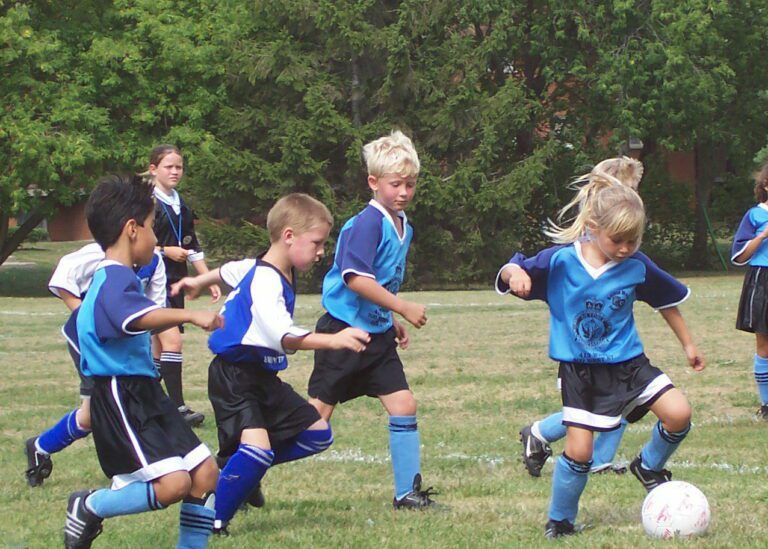6 Signs You’re Micromanaging Your Youth Sports Athlete
Simply put, no one likes to work for a micromanaging boss. It suffocates and aggravates us, while also keeping us from taking risks. Your young athlete feels that same way when you micromanage as a sports parent. Perhaps you are not even aware of your micromanaging tendencies, but I promise they’re not helping your athlete improve his skills or grow while playing youth sports. Are you guilty of micromanaging your athlete? Here are 6 signs that you are.
You interrogate your child after practice
What position did you play? How many reps did you get? Could you tell if you were on the starting team? A barrage of questions after practice indicates that you’re not just interested in your child, but that you’re checking up on whether their youth sports are going as you want. Then, if you hear answers you dislike, might you manage the situation until you get your way?
You Constantly Look for Clever Tactics to Motivate
Do you ever get frustrated that your child seems unmotivated in sports? I can’t even count the number of times I wanted to light a fire under my kid’s butt because I thought they weren’t really trying. So, I’d often resort to a variety of motivational tactics, looking for any way to push them to 100%. This was wrong on so many levels.
First of all, my perception was not always true. I assumed they weren’t going all out in the game because they didn’t play a certain way. This just led them to angrily inform me that I was wrong and made many situations even worse. Second, I’ve come to understand that an athlete’s inner-motivation is really the only thing that’s going to make him better in his youth sports. All my clever motivational tactics will fall flat on a child who does not have the passion to get better.
I’m all for helping kids get motivated to play, but the focus should be on the passion they already have. At the end of the day, you can’t give them passion and desire just because you want them to have it.
You are the Equipment Police
Do you have your shoes? Socks? Water bottle? Uniform? Glove? A long time ago, I actually did have a mental checklist I’d review before we left for each game. Today, I can easily reflect on that and say shame on me. Maybe that’s why my kids are still learning to remember important things. Try teaching your child to be responsible for his own sports equipment. Or, you could always offer up a general question, like: Did you remember to grab all your gear? If he forgets, I guarantee it’s a lesson learned.
You Control Your Child’s Choices
There’s a difference between controlling options and then controlling choices. Give your child options and then let them choose. Which sport? Which team? Which camp? Does she want to take a season off? Micromanaging parents do not teach their children to think when they insist on planning everything. Allowing your athlete to choose from your list of options gives him ownership and responsibility for his choices.
You’re on the Lookout for “Perfect”
It’s very tempting for parents to be on the lookout for the “perfect” youth sports situation, one where their child can play the position she wants, get the amount of playing time she desires, and a team where they endorse the coach’s strategy. In your search for a youth sports team, focus on the coach more than the other two factors. If you find one that truly cares about kids, loves to develop athletes, as well as people, and understands the big picture of youth sports, you’ve found a gem.
You Talk Way More Than You Listen
Do you understand how powerful listening can be? I’ve come to realize this as I study to get my life coaching credential. The life coach’s job is 80% listening and 20% talking. Instead of focusing on all the above traits and questions, try listening to your child and share in their experiences. Most importantly, don’t tell them how to feel or act, instead, find a common ground and provide your support, no matter what the outcome may be.
As parents, we ultimately tend to micromanage with our words. We think we always have to give an opinion or advice. We feel responsible to express our disapproval at every little thing that we don’t agree with. Of course, there is a time to share insight and express your feelings — but we could all benefit from listening a little bit more.
How about asking what your kids think first? Then, once they’re done, you share your thoughts? This shifts the conversation from micromanaging to true communication. Every micromanager I’ve known has stifled the creativity, growth, and productivity of employees. Unfortunately, I fear many sports parents have carried that into the youth sports world and kids are not seeing their full potential because of it.
How useful was this post?
Click on a star to rate it!
Average rating 0 / 5. Vote count: 0
No votes so far! Be the first to rate this post.



